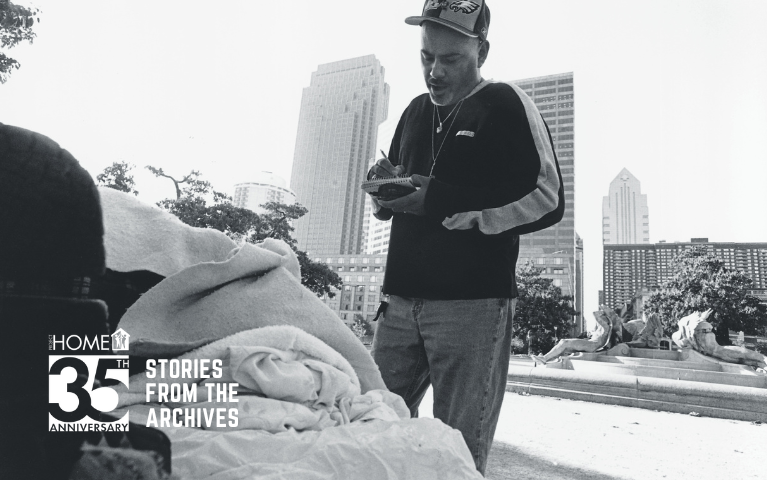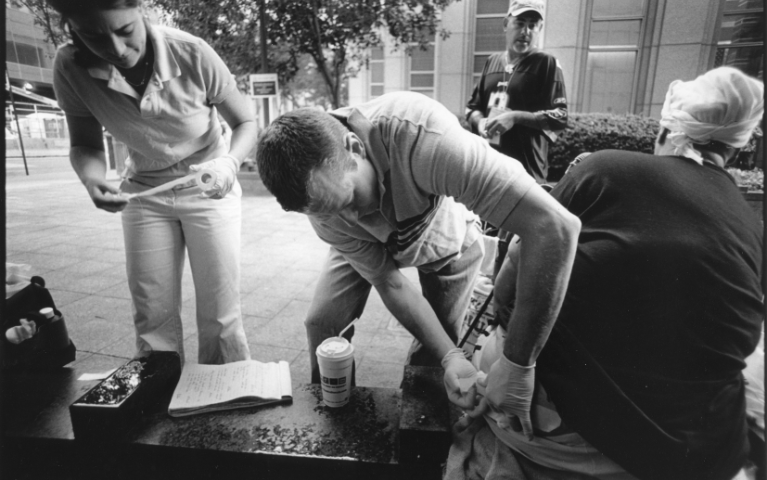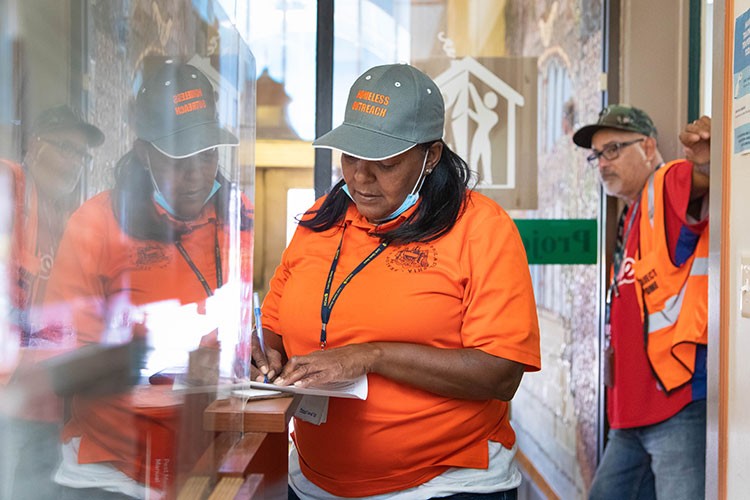Stories From The Archives: Taking It to the Streets

During our 35th anniversary year, we are digging into our deep archives to share stories from our past that highlight some of the many milestones we have celebrated over our nearly four decades of service to Philadelphia.
Street outreach has been a cornerstone of our work since before Project HOME's founding. We detail the beginnings of the Outreach Coordination Center below.
...
Almost as soon as large-scale homelessness hit Philadelphia, outreach was trying to provide assistance to those who found themselves in the streets.
In the early 1980s, economic forces, cuts in general assistance, and especially the closing of large state mental institutions, resulted in dramatic increases in street homelessness. The earliest outreach teams were volunteers, particularly from the Philadelphia Committee to End Homelessness. In the late 1980s, volunteers from various nonprofits teamed up with mental health workers from the Hall Mercer program at Pennsylvania Hospital to work more directly with individuals living on the street. Some of the early outreach, led by the eventual founders of Project HOME, targeted mentally ill women, and led to the creation of a specialized housing program, Women of Hope.
The City of Philadelphia, with state funding, initially formed the Outreach Coordination Center (OCC), in 1988 to coordinate the existing outreach teams.
The OCC was conceived as part of a “continuum of care” strategy that sought to maximize the effectiveness of public and private anti-homelessness efforts in the city. Project HOME took over management of the OCC in 1992. Over the years, the efforts of OCC proved successful in engaging persons on the streets, particularly those with serious addiction and mental health problems, and linking them to services and housing. The OCC is often recognized as a national model of well-coordinated street outreach.
During the 1990s, decreases in shelter availability combined with the epidemic of crack cocaine pushed the street homeless population to record numbers of over 800. In 1998, Philadelphia’s Sidewalk Behavior Ordinance created penalties for living on the street. At the same time, thanks to advocacy efforts led by Project HOME, the ordinance brought new city funding for expanded street outreach and more housing and other resources.

The work of the OCC grew, including reaching out to the broader community to engage them in solutions to homelessness. The next few years saw dramatic decreases in street homelessness in Philadelphia.
Today, the OCC combines the best of professionalized services with a commitment to building trusting relationships with persons on the streets. It is the first step in effective solutions that help break the cycle of homelessness.
Street Outreach and Healthcare
We detail our efforts to pair medical care with street outreach.
